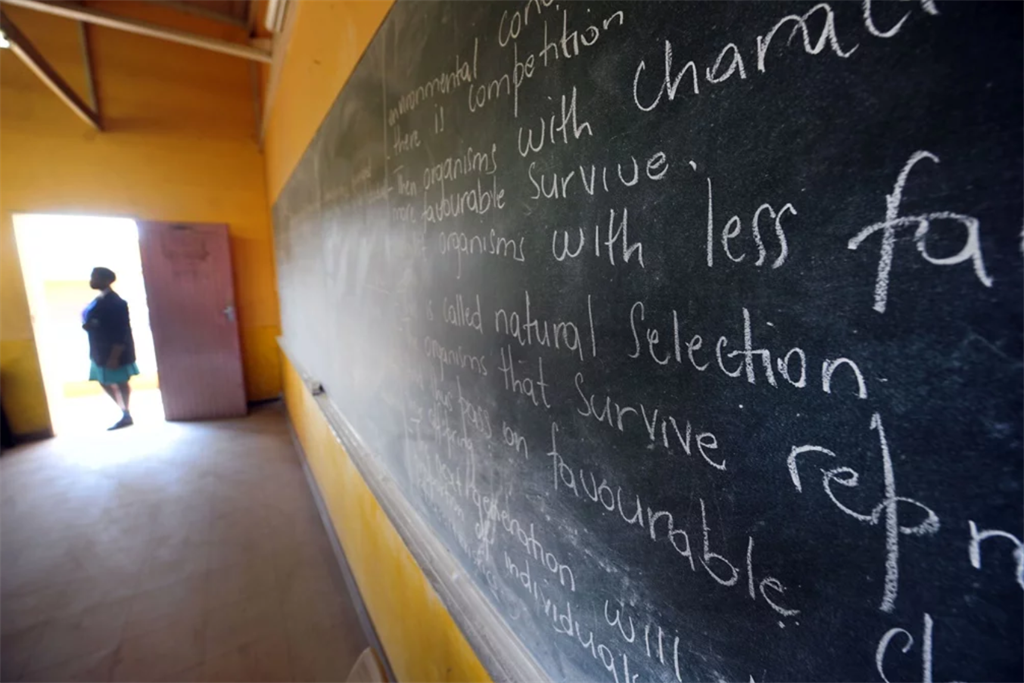


The South African Democratic Teachers Union (Sadtu) has resolved that schools should close during the Covid-19 peak.
- Sadtu has resolved that schools should close during the Covid-19 peak.
- It says, though, that approaching courts will be a last resort.
- Should the Department of Basic Education not meet its demands, the union said it will draft a programme of action.
The South African Democratic Teachers Union (Sadtu) says it does not plan to head to the courts, but will use a different approach, should Department of Basic Education not heed their call that schools close amid a peak in Covid-19 infections in South Africa.
Heading to courts, according to South Africa’s largest teachers’ union, will be a last resort.
Sadtu announced on Tuesday that, after holding a special meeting to find a way forward as infections spike in the country, it had agreed that teaching and learning would come to a halt during the peak.
The union said that, unlike other organisations that had gone to the courts and failed, it would draft a programme of action which it would unveil if Basic Education Minister Angie Motshekga did not meet their demands.
Sadtu has written to Motshekga, requesting to discuss closing schools during the peak, as agreed by its national executive committee.
ALSO READ | Schools should close until Covid-19 peak passes, SADTU resolves
‘There are more effective methods’
The union’s general secretary, Mugwena Maluleke, said it had resolved that, before anything else, it would firstly engage Motshekga, as their employer, before venturing into other actions.
“We know, that in terms of the lockdown and all the other things, we may not be able to have a situation where we say we will go to the streets, but there are more effective methods that we can use instead of going to court, because many people have gone to court and [it] did not help us.
“But we are the teachers and, therefore, we know what strong methods we can use to ensure we protect the lives of learners, teachers, workers, and the lives of the community,” Maluleke said.
Among the organisations that have failed in their court bids to have schools closed is that of former DA leader Mmusi Maimane – the One South Africa Movement.
Maimane has been calling for schools to close during the Covid-19 peak and that the curriculum and examinations be adjusted to accommodate the lost time after the peak ends.
Speaking to News24 on Tuesday morning, Maimane said he was willing to head to the apex court because the decision by the department to open schools was “irrational”.
Sadtu believes that, while schools are closed, work could be done to prepare and ensure that they are ready to welcome pupils of all grades when the peak ends.
Radio lessons
The union said no effective teaching and learning was taking place in schools due to them closing and reopening when cases were recorded.
It urged its members to continue going to school in the meantime as it engaged with the minister.
Maluleke said there was a need to cut the intensity of movement to ensure that the tracking and tracing is made easier.
He added that the union was not calling for teaching and learning to stop while schools were closed, but for it to happen using other platforms which would be accessible to every pupil.
“We are saying we need to perfect other platforms in terms of blended learning. One of those particular platforms that would work for rural schools and townships in particular, where there are people who do not afford online [learning], is the radio lessons.
“We need to blend those particular radio lessons in such a way [that] they need to be interactive [and therefore also] instructive, so that then you are able to benefit as the learner from the teacher who is dealing with that. We have got so many radio stations in our country and it is up to us and our department to ensure that those particular things are coordinated, so that they are done,” Maluleke said.
He said the blended learning solutions were not only short-term, but a long-term solution, because the virus was still going to be around after its peak.
He added that calling off the academic year was not possible, particularly in South Africa, because of inequality, saying suburban and private schools were already receiving more pupils than required.
“Hence, we are going to meet with the minister to analyse the situation, so that we are able to say what is and is not possible, which grades may come back and which may not – and whether we can really afford to receive more grades or not after the peak. That is the discussion the NEC said we must go and have with the minister because we have to be realistic”.

